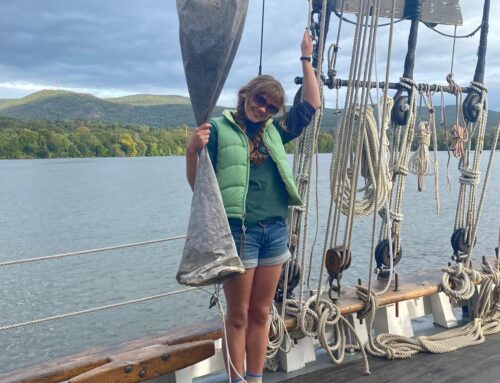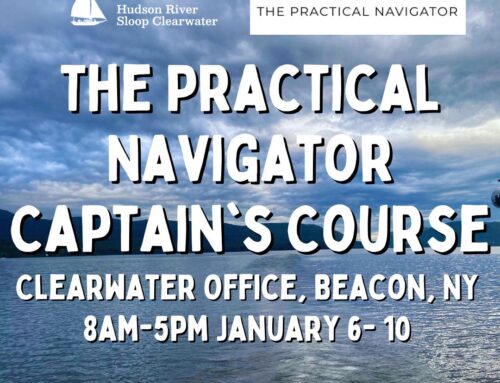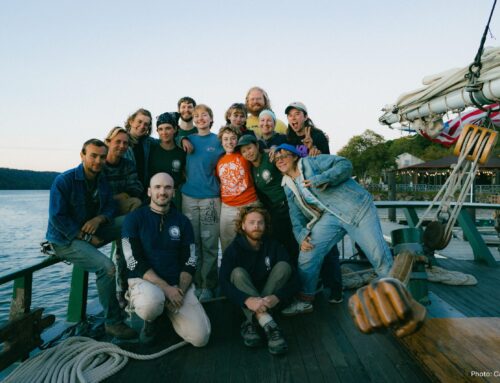Clearwater is among 45 groups and individuals from across the nation seeking to ensure that the U.S. Nuclear Regulatory Commission (NRC) immediately suspend all licensing and other activities at 21 proposed nuclear reactor projects in 15 states, until the NRC completes a thorough post-Fukushima reactor crisis examination. Clearwater is a party with standing in the relicensing process Indian Point Nuclear Power Plant before the Atomic Safety and Licensing Board (ASLB), along with Riverkeeper and New York State.
The petitioning parties seek a renewed opportunity to participate in licensing proceedings that have been closed to public participation, but are still pending before the agency. In some cases petitioners have already intervened in pending NRC licensing proceedings and seek an opportunity to participate with respect to the application of new information regarding “lessons learned” from Fukushima to those proceedings.
Specifically, the petition seeks suspension of six existing reactor license renewal decisions (Columbia, Davis-Besse, Diablo Canyon, Indian Point, Pilgrim, and Seabrook); 13 new reactor combined construction permit and operating license decisions (Bellefonte Units 3 and 4, Bell Bend, Callaway, Calvert Cliffs, Comanche Peak, Fermi, Levy County, North Anna, Shearon Harris, South Texas, Turkey Point, Vogtle, and William States Lee); a construction permit decision (Bellefonte Units 1 and 2); and an operating license decision (Watts Bar). In addition, the petition asks the NRC to halt proceedings to approve the standardized AP1000 and ESBWR reactor designs.
The petition also calls for the NRC to supplement its own investigation by establishing an independent commission. To view the petition, please click here.
Emergency action by the NRC is necessary as a number of the pending licensing proceedings are approaching completion. Recently the NRC received extensive criticism for extending the license for the controversial and problematic Vermont Yankee reactor, which the Vermont legislature has voted to close, just days after the Fukushima reactor disaster.
An attorney for the petitioners, Diane Curran of Harmon, Curran, Spielberg & Eisenberg, LLP, said, “The NRC violated the law by relicensing the Vermont Yankee reactor at the same time it launched an investigation into whether U.S. safety and environmental standards are strong enough in light of the Fukushima accident. The National Environmental Policy Act requires the NRC to learn and apply the lessons of Fukushima before it allows another reactor to operate. By establishing a Task Force and ordering the investigation of the regulatory implications of the Fukushima accident for U.S. reactors, the NRC has obligated itself to consider those implications in all prospective licensing decisions. We demand that the NRC establish a credible process for studying and applying the lessons learned from the Fukushima accident, in keeping with the precedent created after Three Mile Island.”
Curran also said, “Suspension of licensing decisions pending investigations of lessons learned also would be consistent with the course followed by the Commission following the Three Mile Island accident, when the Commission delayed new licensing actions for a year and a half while it studied the implications of the accident for reactor safety.” In addition, Curran said, the Commission should request the appointment of an independent Presidential Commission, as was done after the Three Mile Island accident.
To view the petition, please visit http://www.nuclearbailout.org.
Clearwater to host technical briefing, “Indian Point Energy Roundtable: A Summit for Solutions”
In addition to calling for a moratorium on new licensing and relicensing, as a follow-up to its recent “Indian Point Power Sail,” Clearwater is hosting a technical briefing, “Indian Point Energy Roundtable: A Summit for Solutions,” on Monday, April 25, from 1pm -5pm at the Desmond-Fish Library in Garrison, NY. Directions to venue can be found at http://dfl.highlands.com/hours.html.
The symposium will focus on energy issues affecting the Hudson River Valley, including the risks associated with the operation of Indian Point in the context of the recent disaster at Fukushima Daiichi, the risks not covered by a narrowed NRC Relicensing Process, and the NRC’s excessive granting of exemptions in the relicensing process. Key points of discussion centered on “risk” will include evacuation, seismic activity, health effects of exposure to radiation, terrorism, and long-term onsite storage of nuclear waste
Transitioning to a green energy economy will be the focus of the second part of the roundtable. Participants will work to identify the true percentage of power to be made up if Indian Point is taken offline; existing replacement energy currently on line or in the pipeline; the percentage conservation can replace; and the opportunity for renewable alternatives such as solar, wind, tidal, geothermal technologies; and strategies to bring green jobs to the Hudson Valley economy.
The goal of the dialogue is to bring together experts in seismology, evacuation, health and from the full spectrum of the energy industry to present the best information available to the area Congressional delegation and to elected officials, especially those from the four counties adjacent to Indian Point and New York City. Community leaders and the media are invited.
For more information, contact Manna Jo Greene at 845-265-8080, ext 7113, or email manna@clearwater.org.





